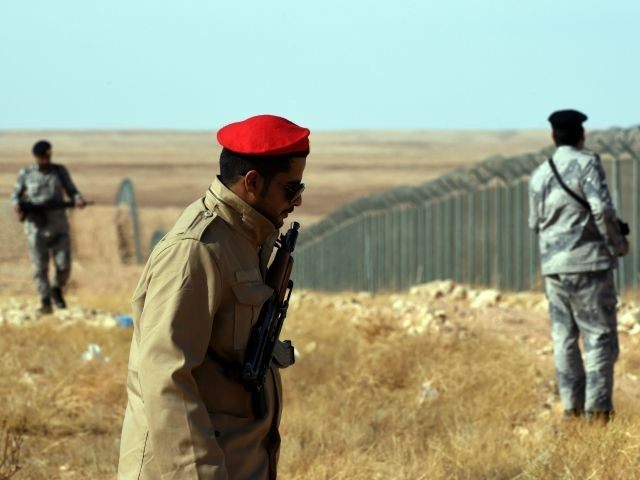Sunni Saudi Arabia has reportedly embarked on a U.S.-brokered effort to expand its diplomatic presence, open direct flights, and reopen border crossings with its Shiite-led neighbor Iraq to weaken its rival Iran’s growing influence in the region.
“Saudi Arabia, with U.S. assistance, is pushing aside years of rancor with its neighbor Iraq and mounting a broad effort to win Baghdad’s allegiance and dilute Iran’s influence over the pivotal U.S. ally,” reports the Wall Street Journal (WSJ). “Saudi authorities are courting Iraq’s Shiite leaders, expanding the kingdom’s diplomatic presence, opening direct flights and reopening crossings closed for decades on the heavily fortified, 600-mile border.”
“We share historical, cultural and social links with Iraq,” declared Thamer al-Sabhan, minister of state for Gulf affairs, after stopping at the recently reopened Arar border crossing, notes WSJ. “If anything, I think we should be moving even faster.”
Citing an unnamed U.S. official, WSJ points out that President Donald Trump’s administration has brokered the effort to improve Saudi-Iraqi relations.
“Soon after the start of his tenure in February, Secretary of State Rex Tillerson sought to persuade his Saudi counterpart, Adel al-Jubeir, that the kingdom should carve out a bigger role for itself in Iraq, a U.S. official said,” notes the Journal.
The Saudi kingdom and Iraq have decided to open their long-closed border at Arar and agreed to open at least one more at Jumaima.
“We have been focused over the last three years not only on defeating Daesh [ISIS], but on what comes after Daesh,” Brett McGurk, the U.S. envoy to the anti-ISIS coalition said at the border with Mr. Sabhan.
“We will do everything we possibly can to support your effort,” he added, addressing the Iraqi and Saudi officials gathered there.
Iraq also has eight open border crossings with its ally Shiite Iran, Saudi Arabia’s regional enemy. Iran has reportedly said it is not concerned about the growing relationship between Iraq and Saudi Arabia.
“What’s important is that we are so self-confident about our role in the region and the type of relations we have with our neighbors that we are not worried about these moves,” Iranian Foreign Minister Mohammed Javad Zarif told the country’s semi-official Iranian Students’ News Agency.
Saudi Arabia’s shift in position towards Iraq is a welcomed change in Baghdad, providing a much-needed political and economic lift to the country as it pushes out the Islamic State (ISIS/ISIL) and tries to rebuild.
The U.S.-led coalition that has been fighting ISIS in Iraq and Syria includes both Saudi Arabia and Iraq, placing both countries on the same side with Iran which has also been combating the Sunni terrorist group.
An unnamed U.S. official, who noted that the Saudi-Iraqi relationship is a priority for the Trump administration, told the Journal the focus of the effort is to align Iraq “a little more toward the Saudi Arabias and Turkeys of the world—and to blunt a little bit the Iranian influence.”
Even while campaigning for president, Trump was an ardent critic of Iran’s growing influence in Iraq.
Late last year, the Iraqi parliament legalized Iran-allied Shiite militias, including some with American blood on their hands, as an official component of the country’s military, placing them under the control of Iraq Prime Minister Haider al-Abadi.
Nevertheless, WSJ reports that Shiite Abadi “has welcomed the counterweight to Iran,” adding, “The Saudi outreach comes as he battles a political rival who is close to Tehran, former Prime Minister Nouri al-Maliki, ahead of parliamentary elections next year.”
In 2016, Abadi-led Baghdad expressed concern over the growing influence of recently sanctioned Shiite militias in Iraq, collectively known as the Popular Mobilization Forces (PMF), Popular Mobilization Units (PMU), and Hashd al-Shaabi.
Analysts believe there between 100,000 and 120,000 PMU fighters in Iraq.

COMMENTS
Please let us know if you're having issues with commenting.